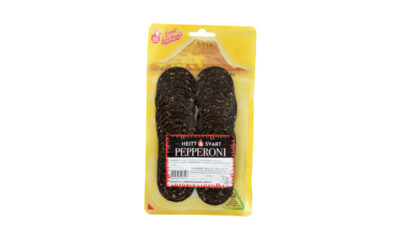Lifid
Restaurant inspectors on the front lines against food-borne disease
By MARY LANE GALLAGHER, THE BELLINGHAM HERALD
|
|
| Health inspectors found this cooked chicken next to an extremely moldy cucumber in a refrigerator at New China Cafe. The Bellingham restaurant was closed down in December due to numerous serious health code violations. |
———————————————————————-
Dirty floors can make restaurant-goers queasy. But health inspectors know it’s dirty hands that can really make you sick.
And in many cases, area restaurant workers aren’t washing their hands enough, according to a Bellingham Herald analysis of unofficial internal electronic records from the Whatcom County Health Department.
Inspectors also find dozens of restaurants and other food service establishments that don’t keep food hot or cold enough, providing an opportunity for disease-causing bacteria to grow. That, to inspectors, is more worrisome than most dirt they can actually see.
„The most important things we look for from a disease-prevention standpoint are going to be invisible to a casual observer in the kitchen,“ said Tom Kunesh, an environmental health specialist for the Whatcom County Health Department who has inspected local restaurants since 1989.
Unwashed hands are one of the riskiest things in any commercial kitchen – and one of the easiest to fix. But even with county health inspectors looking on, food-serving establishments have been cited 116 times – more than 14 percent of all inspections – in the past several months because employees weren’t properly scrubbing up.
„That’s very disturbing, actually,“ said Skyla McLean, general manager of Dos Padres Restaurant in Fairhaven. „In a town that had (a death) due to E. coli several years ago, it should be in all restaurant managers’ heads.“
Dos Padres is one of about 70 places under current management that have never received a „high risk“ point on a health inspection, according to Whatcom County Health Department unofficial internal records. That’s out of the county’s nearly 1,100 eating establishments.The state Department of Health estimates Washington residents come down with food poisoning 1.5 million times each year. And state health officials believe improperly washed hands contribute to about 10 percent of those illnesses.
„When you actually see as little hand washing as we do, it’s a significant problem,“ Kunesh said.
Most victims of food-borne illness face a rough day or two of nausea, vomiting and diarrhea. But it can be much more than a ruined weekend for the very young, elderly, pregnant women and people with immune deficiencies. In 1993, 17-month-old Riley Detwiler of Bellingham died from complications of E. coli poisoning he contracted from another little boy who had eaten a hamburger containing the bacteria.
The state estimates people go to the hospital with food-borne illness 6,500 times each year, and 100 people die.
Worker hygiene practices – hand washing, not touching ready-to-eat food with bare hands and not preparing food when ill – top Kunesh’s „yikes“ list.
„Common sense tells you germs are spread by not washing your hands, especially after using the bathroom or handling raw meat products,“ he said. „Those are real risk factors that are easily prevented by good hygiene.“
The unofficial database shows that food service establishments were cited 59 times since June for employees touching ready-to-eat food such as sandwiches and salads with their bare hands, a violation of state law.
The state’s new food code enacted May 2 now prohibits bare-hand contact with ready-to-eat food. Previously, the rule was open to interpretation, requiring food workers to „minimize“ touching the food with their bare hands.
But despite some hold-outs, Kunesh said, „we’ve been much more successful in getting people to use gloves or use utensils than we have been getting people to change their habits and wash their hands often enough.“
Wearing gloves all the time can be a hard habit to develop, said Dale Schrader, who owns a Subway sandwich shop in Blaine. The shop is also among the 70 that appear to have no „high risk“ points.
„Initially, it was a little bumpy, just that extra time it takes when you’ve got people lined up for service,“ Schrader said. „Then customers realized it was to their benefit to have that safety.“Kunesh explains the importance of hand washing with the patient, hundredth-time demeanor of an eighth-grade teacher explaining how photosynthesis works.
People carry nasty germs, he said, from the common cold to stomach bugs. Ill workers – including those who don’t know they’re carrying the germs – can infect customers when they touch food that will be eaten right away.
But unwashed hands are also „a way for germs to hitchhike from one place to another,“ Kunesh said. If people touch dirty dishes, raw meat or a grimy floor grate and don’t wash their hands, they could give their customers an unwanted side order of bacteria with their sandwich.
The other thing that makes health inspectors cringe is temperature. Food that isn’t thoroughly cooked can look, smell and even taste fine, Kunesh said, but still be laced with pathogens. Foods that aren’t cooled quickly enough or kept cold enough or hot enough also can nurture bacteria.
Poor hand washing and food temperature are considered red „high risk“ violations. Red infractions are thought to be the most likely contributors to food-borne illness. Blue „low risk“ infractions are cause for concern but aren’t likely to get anyone sick.
A look at the Health Department’s unofficial database shows 49.5 percent of inspections between June 1and March 14 resulted in no red points at all.
The department doesn’t track blue points electronically.
Inspectors are looking for risks of illness spreading, not how pretty and clean the place looks. For example, infractions that might send customers stampeding for the door – such as bugs and rodents, dirty bathrooms or dirty-looking waiters – aren’t considered „high risk“ factors on the state inspection report form.
But a chef not cooling food correctly can rack up 30 red points at once. Not keeping food hot enough can earn a restaurateur 25 points. Not cooking food long enough or to the right temperature? Another 25 red points. Prep chefs who don’t wash their hands for 20 seconds and put on a new pair of gloves before chopping lettuce for the salad can earn another 30 red points – 15 for the hand washing and another 15 for the bare-hand contact. Add another 10 points if dirty dishes or the latest vegetable delivery is stacked in the hand-washing sink.
A mouse or insect in the kitchen, on the other hand, as long as the unwanted critters aren’t in the food itself, earns five blue „low risk“ points.
In Whatcom County, restaurants that get 40 red points on an inspection typically receive an „enforcement letter,“ officially warning restaurant managers to fix the problems. If inspectors see those same red problems on follow-up inspections during the next six months, they might order the restaurant closed.
Restaurants that receive more than 70 red points on their first routine inspection face closure.
But inspectors don’t like to let it go that far, said Paul Chudek, environmental health supervisor. Along the way, Chudek said, the health department offers to train restaurant employees to help correct the practices.
Kunesh said the job requires strong skills of observation, analysis, conversation and diplomacy. Sometimes, a pointed question and a puzzled look draw out as much information as a thermometer. The best inspections, he said, are the ones that result in conversations about how to improve food safety practices, not necessarily the ones with low red point scores.
Then there are times he shows up on the day that everything is going wrong.
„Some days,“ he said, „I’m called ‘Murphy.'“
Örn Garðars

-

 Viðtöl, örfréttir & frumraun2 dagar síðan
Viðtöl, örfréttir & frumraun2 dagar síðanNotað Og Nýtt – Facebook hópur til að selja/kaupa notuð eða ný tæki
-

 Nýtt bakarí, veitingahús, fisk- og kjötbúð og hótel3 dagar síðan
Nýtt bakarí, veitingahús, fisk- og kjötbúð og hótel3 dagar síðanNýr kafli í miðborginni, Gamla Reykjavík tekin til starfa
-

 Markaðurinn5 dagar síðan
Markaðurinn5 dagar síðanReyndur kokkur óskast í vaktstjórastarf á Snæfellsnesi
-

 Keppni4 dagar síðan
Keppni4 dagar síðanNational Fish & Chip Awards: Íslenskur sigur við Mývatn vekur athygli
-

 Viðtöl, örfréttir & frumraun4 dagar síðan
Viðtöl, örfréttir & frumraun4 dagar síðanEldhús í ofurkeyrslu: 1.000 starfsmenn umbreyta Mercedes-Benz Stadium á innan við 18 klukkustundum
-

 Markaðurinn3 dagar síðan
Markaðurinn3 dagar síðanSegðu skilið við viðbrenndan grjónagraut í eitt skipti fyrir öll og prófaðu þessa aðferð
-

 Markaðurinn4 dagar síðan
Markaðurinn4 dagar síðanHefur þú smakkað svart pepperoni?
-

 Markaðurinn6 dagar síðan
Markaðurinn6 dagar síðanÞorskur í sparifötunum, stökkur ostahjúpur og sítrónukeimur














